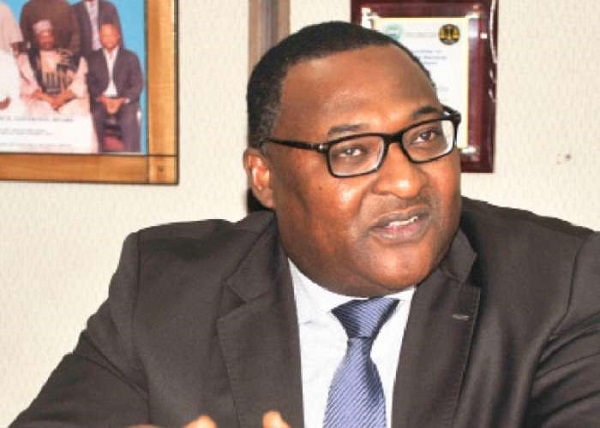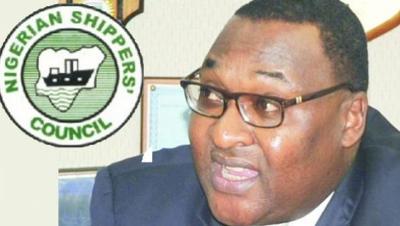NSC vs Shipping companies Appeal Court Judgement

“ The Confusion We Put Ourselves In”—-Chidi Ilogu
Barr. Chidi Ilogu, SAN is a maritime lawyer, and one of the attorneys working for the terminal operators and the multinational shipping firms in Nigeria challenging the economic regulatory powers of the Nigerian Shippers Council(NSC) to checkmate the excesses of the operators in a port reforms regime.
In 2008, he was appointed the chairman of the Federal Ministry of Transport Committee on Complaints of Arbitrary Increases in Local Shipping Charges by Private Terminal Operators,Ship Agents and Bonded Terminal Operators and equally served as Chairman in 2010/2011 of the Federal Ministry of Transport Port Reforms Evaluation Committee. In this interview with MMS Plus, he speaks on recent Appeal Court Judgement on the case between the shippers’ council and his clients, admitting that some judges lack the knowledge of maritime issues, which is capable of affecting their judgements. However, he explains what transpired in the case between the Council and his clients.
What is your interpretation of the recent Court of Appeal judgment between the Nigerian Shippers Council and Shipping Lines?
One of the fundamental issues in the Appeal was that the Shippers’ Council Act doesn’t empower the Council to act as the regulator of the maritime industry. This is a fundamental issue with due respect to the Council, there is need to have the legal backing of the law. The Council’s establishing Act hasn’t been amended to cover its port economic regulatory functions and it cannot be amended by a mere presidential directive.
This is because a presidential directive or order isn’t captured as an amendment in law. As much as the Presidential directive may be well intended, it must be consistent with an existing law. That was what the Court of Appeal held that neither the Shippers’ Council Act, nor the Nigerian Ports Authority Act empowers the Shippers Council to do what it was doing or what is was purporting to do. This is a major issue for the maritime industry because until the Port Authority’s Act or Shippers Council’s is amended to cover the new role, Shippers’ Council has no locus standi to regulate the industry. It is the NPA that has the power to regulate the industry under the present laws. So, it would be usurping the powers of NPA for NSC to play that role. Hence, there has been a bit of confusion as to who is entitled to play the role. This decision has effectively resolved that conflict, so strictly speaking there is no lacuna.
On what basis did the Court mandate Shippers’ Council to collect the refunds on Shipping Line Agency Charges (SLAC), if the Council isn’t recognized as a port regulator?
The issue of refund isn’t about Shippers Council being the regulator or not. There is an existing understanding between the Council and Shipping Lines associations under Section 3 of the current Shippers Council Act. So, the court held that by virtue of that relationship they should negotiate and agree rates but for NSC to impose rates was also ultra vire to the powers of the Council. There was a relationship but there was no agreement on the rate, so the court held that the rate that was already collected should be refunded to the NSC. Again, the question is, does Shippers’ Council have the right to collect the fund? Because some of us contend that Shippers’ Council doesn’t have the powers to collect the rate. These funds were paid by various customers so the refund should go to those customers and not the Cargo Defence Fund (CDF). If by virtue of their role as the “protector of the shippers” Shippers’ Council is to collect that fund that may be a difficult scenario. Would the Council be able to return the fund to the shippers or would they convert it to their use?
The fund is to be sent to the Cargo Defence Fund…
Cargo Defence Fund didn’t ask for the fund in the first place. Remember, Cargo Defence Fund is a separate entity, it is a company limited by guarantee and it has its distinct legal status. Cargo Defence Fund is not an arm or a division of Shippers’ Council. It is an entity that has a legal status and the aim of the company is to aid shippers who have challenges in resolving their conflict with customers.
Looking at the Nigerian maritime sector, you would observe that the Vice President came up with executive order that is set to reposition the industry; with this judgment wouldn’t people violate President orders and go to court to argue that there is no legal backing? Doesn’t this make the nation prone to anarchy?
It shouldn’t expose the nation to anarchy. However, you need to understand that the executive arm of government (which the President, Vice President, Ministers, etc. are involved in) is for the smooth administration of issues in the society. So, the Vice President’s directive and others are for the smooth running of the ports. They are administrative issues; therefore they are properly within the competence of the executive. So, the President or Vice President can work hand-in-hand with the concerned ministry and the Nigerian Ports Authority can implement that administrative directive. That is what the court says. Whatever the President wants to do has to be of an administrative nature to implement the regulations and policies that work for the smooth running of the country.
If Shippers’ Council’s port regulatory function is classified as an absurdity, the port concession exercise is also a presidential directive; shouldn’t it also be classified as an absurdity?
No. The port concession was done under the NPA Act and the concession was granted to the concessionaires based on the provision of the NPA Act which allowed NPA to lease their facilities.
Those terminals were let out on a landlord/ tenant basis. NPA remains the landlord while the terminal operators are like tenants. So, you have a landlord who tells the tenants what to do and how to use the property. That is well taken care of under the NPA Act so it is a relationship at a different level. So, the Shippers Association has a relationship which Shippers’ Council within the Council’s Act while NPA has a relationship with terminal operators within NPA’s Act. That is where the separation of powers comes because NPA deals with the terminals while Shippers’ Council deals with the shippers and shippers’ interest.
What is the difference between an economic regulator and a technical regulator?
This question stems from the argument that the technical aspect remains for the purpose of running the ships, manning the ships, directing the use of the ports and other technical issues. On the other hand, the economic regulator has to do with the commercial or monetary issues such as, how much terminal operators charge, what are the tariffs, how do the tariffs affect the cost of landing cargo in the country. The economic regulator also appraises how the revenue helps the economy or how it mars businesses and the nation’s economy. We need to be sure that our society operates at a level that makes the ease of doing business economical. The economic regulator ensures that people don’t get exploited by the level of charges that shipping companies and terminal operators introduce. The idea was to separate these two functions in different bodies but the argument is that the other body has been introduced without having the proper legislation for it. That was what led to the contention against the Shippers’ Council. The issue isn’t that we don’t need an economic regulator but we have to go through the right process.
One of the port reform committees you chaired in the past came up with the recommendation of a port economic regulator. So, some stakeholders in the maritime industry who have been following you allege that for the sake of integrity and consistency, you shouldn’t have taken the brief against Shippers’ Council. What’s your take?
There must be a misunderstanding of the events. My approach wasn’t that I was not in support of the Council being made port economic regulator, but things have to be done properly. Shippers’ Council isn’t the problem. The problem is the procedure for the appointment of the Council. It was irregular and that is what the Court of Appeal has ruled.
You cannot appoint Shippers Council without amending its Act to give it legal backing on the new role. The laws must be followed because when there is no law to support an action, that action is ultra vires. My stand isn’t that I’m not in support of the Council’s role as economic regulator but my argument in Court was that I support only due process which the Court rightly ruled. There must be consistency and due process.
Talking about due process, you see how the National Transport Commission bill and the Ports and Harbour bill have stayed over 10 years in the National Assembly. Should the economy be allowed to bleed dry as a result of arbitrary charges by terminal operators and shipping lines while the legislature delays the bills?
Such delays shouldn’t be used as an excuse to do things the wrong way. Things should have been done speedily to bring up the legislation. This should have been concluded in one or two legislative sessions if things are done properly. So, my view is that at a point like this, the requisite law must evolve and it must be done properly.
We shouldn’t short-circuit things just because of the urgency to address issues in the industry. The urgency should lead to the speedy establishment of the requisite laws via due process. Some of the problems in the country arise when we tend to act without being mindful of the implications. That is the confusion we put ourselves in; but we know the proper thing to do, so we should do it.
I am aware that there is a move by the National Assembly to create an NTC bill that would create a National Transport Commission. The NTC should be properly considered and put in place. When that is done there would be no need to appeal anything if the proper steps are taken. I don’t know if Shippers’ Council would transmute into the NTC but due process must be taken just like the Nigerian Communications Commission (NCC). There was no fight when NCC came up because it followed due process and all the communication companies know where to fall in. They complied with the requirements of NCC because the system was properly organized, the same thing must be done with Shippers’ Council.
So, in other words, are you saying there are no loopholes for people to exploit by flouting the recent Executive Orders by the Vice President, Osinbajo, on port operations with confidence that there is no legal backing?
The sooner things are done properly, the better. For now, I believe NPA is doing its job with regards to the executive order on ports especially with regards to terminal operators and Shippers’ Council is doing its role in relation with shipping associations to negotiate rates and come to terms. The Council always had a relationship with the shippers because that is their main function.
A renowned maritime lawyer told me that the judge was presided over the case didn’t have sufficient knowledge about the peculiarities of the maritime industry, as President of the Nigerian Maritime Law Association (NMLA) what are you doing to enhance the scope of judges on the maritime sector?
It is true that most judges don’t have sufficient knowledge on the maritime sector because most Nigerian universities don’t offer maritime law. It takes personal efforts for judges to study the sector and the issues in order to enhance their competencies and make judicious judgments. Where the judges are not well informed, it is unfortunate if they can’t create time for personal study. They can read up some of the issues but that may not be sufficient and they may need some level of exposure to maritime issues. We have annual maritime seminar for judges sponsored by the Nigerian Shippers’ Council, and some of us go there as resource persons. Some of us have also written books that they could read.







